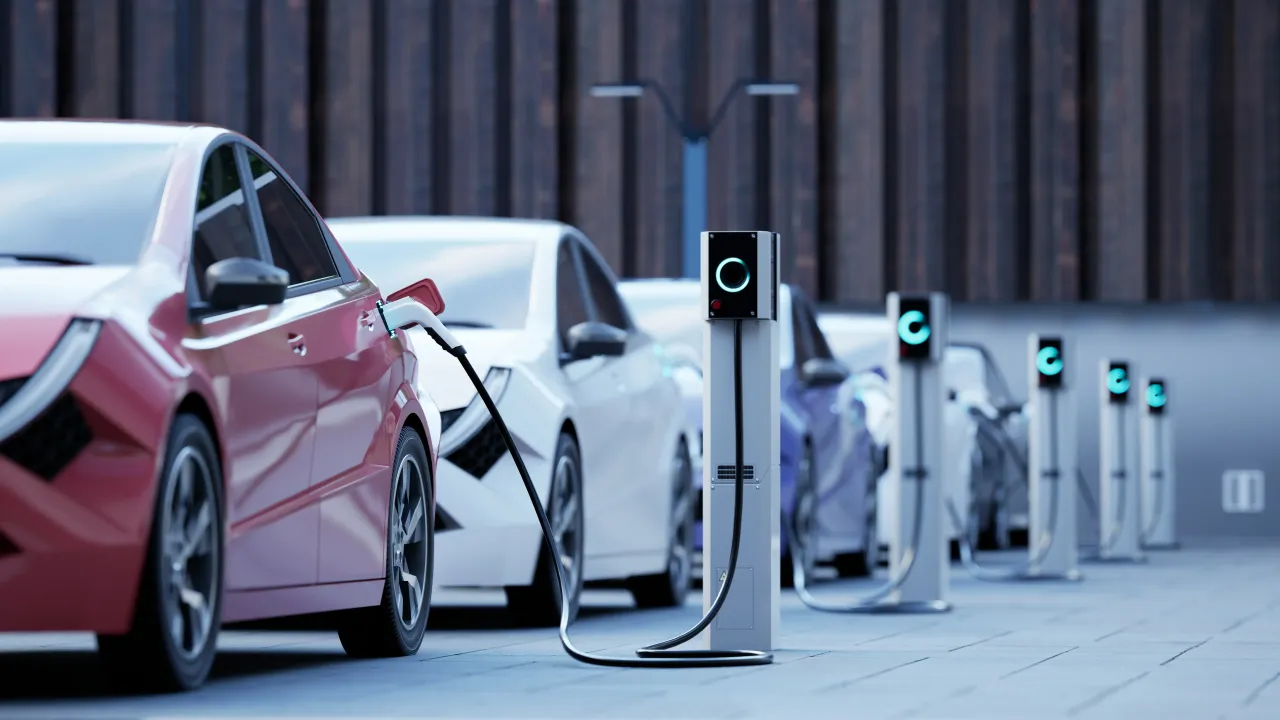Advertisement|Remove ads.
Ford, Toyota, Renault, Volkswagen, Audi Turn To Chinese EV Platforms — A New ‘Intel Inside’ For Cars

Global automakers are reportedly relying more on Chinese technology to fast-track electric vehicles, with Ford, Toyota, Renault and Volkswagen joining Audi in adopting Chinese EV platforms, software and powertrains to cut costs and shorten timelines.
Audi’s turning point came in 2021, when its executives were stunned by the Zeekr 001, a long-range EV with European styling. “The Zeekr 001 back then shocked quite everyone,” said Stefan Poetzl, president of SAIC Audi Sales and Marketing, according to a Reuters report.
In response, Audi partnered with SAIC to develop the Audi E5 Sportback, built in just 18 months with Chinese batteries, electric drive systems, infotainment and advanced driver assistance. The $33,000 model will be delivered to Chinese buyers this month.
Other global players are pursuing similar strategies. Toyota is co-developing China-dedicated models with Guangzhou-based GAC, while Volkswagen has expanded plans with Xpeng that cover both EV and fuel models.
Renault built the Dacia Spring on a Dongfeng platform and is apparently developing a new electric Twingo in Shanghai with support from Launch Design. Ford is actively seeking a Chinese partner, with CEO Jim Farley praising local models such as Xiaomi’s SU7 sedan.
Stellantis has already taken the step of licensing technology: CEO Zhu Jiangming said its partner Leapmotor will sell EVs overseas and is in talks with other brands to license its platform.
Abu Dhabi-based CYVN Holdings, an investor in Nio, has also reportedly built a premium EV using Nio’s chassis and software, with plans to sell under the McLaren brand.
Analysts say the model resembles the “Intel Inside” campaign of the 1990s, where Chinese EV makers package chassis, batteries and software into ready-made kits for foreign manufacturers.
The approach saves billions in R&D and years of development, while providing Chinese companies with valuable licensing revenue amid a bruising domestic price war and mounting trade tensions abroad.
“It is a very smart, win-win solution,” said Will Wang, general manager of Shanghai-based consultancy Autodatas. Marco Santino of Oliver Wyman added that the “firepower” of China’s fierce EV competition allows legacy carmakers to bring higher-quality products to market more quickly.
But some warn of long-term risks. Former Aston Martin CEO Andy Palmer cautioned that over-reliance on outside technology could leave traditional automakers as “just a retailer.”
Analysts also noted that companies like Volkswagen are seeking to blend Chinese systems with their own to preserve brand differentiation.
On Stocktwits, retail sentiment was ‘bearish’ for Ford amid ‘low’ message volume, while it was ‘neutral’ for Toyota with ‘high’ volume, Renault with ‘low’ volume, and Volkswagen with ‘normal’ volume.
So far this year, Ford is up 22.5%, Toyota’s U.S.-listed stock has gained 3.2%, Renault’s U.S.-listed shares are down 14.7%, and Volkswagen’s U.S.-listed stock is up 33.8%.
For updates and corrections, email newsroom[at]stocktwits[dot]com.












/filters:format(webp)https://news.stocktwits-cdn.com/large_winklevoss_1c7de389e0.webp)
/filters:format(webp)https://news.stocktwits-cdn.com/Anushka_Basu_make_me_smile_in_the_picture_b92832aa_af59_4141_aacc_4180d2241ba8_1_2_png_1086e0ed8c.webp)
/filters:format(webp)https://news.stocktwits-cdn.com/large_altcoins_5a22b361ff.webp)
/filters:format(webp)https://news.stocktwits-cdn.com/large_Tether_2376a55503.webp)
/filters:format(webp)https://news.stocktwits-cdn.com/large_robert_kiyosaki_d28a01cb4b.webp)
/filters:format(webp)https://news.stocktwits-cdn.com/large_Bitcoin_and_Ethereum_2b4356b70a.webp)
/filters:format(webp)https://news.stocktwits-cdn.com/large_Getty_Images_976546456_jpg_42ddd4a81d.webp)